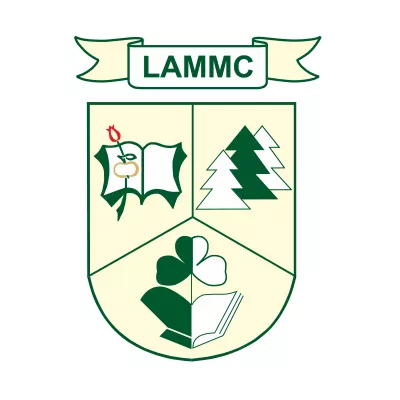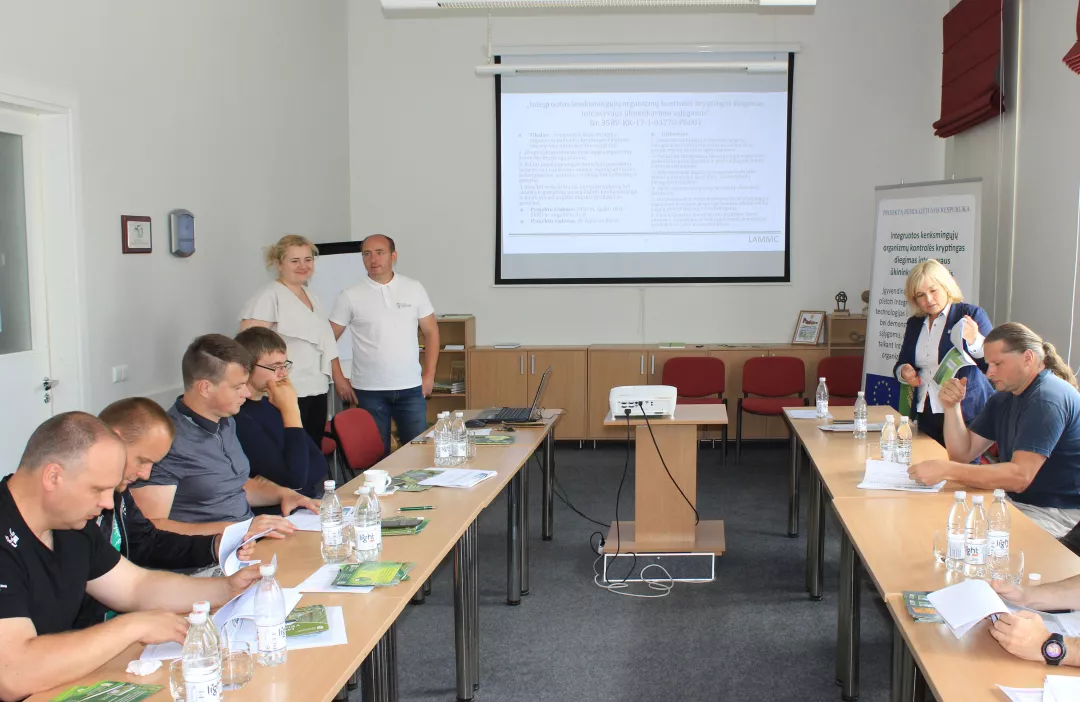General information
RDP Priority
- P1. Knowledge transfer and innovation
RDP Focus Area
- 1A: Innovation & cooperation
RDP Measure
- M16: Cooperation
Summary
An EIP-AGRI Operational Group in Lithuania identified cost saving opportunities for farmers by benchmarking Integrated Pest Management (IPC) technologies against conventional pest controls. Integrated approaches involved continuous monitoring of crops and treatments to remove only the target pest. The conventional technologies were less precise and sprayed growth regulators, fungicides and insecticides during set stages of crop growth.
Results
- Costs savings for farmers from using integrated technologies e.g. costs ranged from EUR 54.49 to EUR 70.81 compared to average costs of pesticides for winter wheat ranging from EUR 71.37 to EUR 94.27.
- Herbicide costs in 2019 were the same for both technologies, and in 2020, additional spraying was skipped on one farm due to low weed spread.
- By applying the principles of integrated technology, it was possible to reduce the average costs of spraying fungicides by EUR 12.63 in 2019 and EUR 10.44 in 2020.

Promoter
Centre of Lithuanian agricultural and forest sciences
Funding
Total budget - 401 605.00 (EUR)
EAFRD - 161 492.35 (EUR)
National/regional - 28 498.65 (EUR)
Private - 211 614.00 (EUR)
Resources
Documents
Targeted implementation of integrated control of harmful organisms under intensive farming conditions
(PDF – 2.17 MB)
Context
Farmers do not always make informed decisions when choosing plant protection methods. This can be due to limited information available to them concerning the spread of diseases and pests, as well as latest findings from scientific research about the applicability of Integrated Pest Control (IPC) measures. As a consequence, they might not routinely use targeted Plant Protection Products (PPPs) because they are unable to judge the appropriate dosage or timing that will address the problem. Hence, the irresponsible overuse of PPPs can still exist and this can ultimately harms biodiversity and increases pollution.
As agricultural production becomes increasingly intensive and specialised, the problem of implementing IPC principles on farms has become more acute. Combining up-to-date scientific knowledge and innovations with the practical knowledge and experience of agricultural consultants and farmers, can help implement a targeted system for the integrated control of harmful organisms in plant cultivation technologies.
Objectives
The main objectives of this Operational Group were:
- To implement a targeted system for the integrated control of harmful organisms in agriculture.
- To perform an analysis of the application and use of plant protection methods and tools, when combining science, consulting and farming.
- To concentrate scientific knowledge, the application and dissemination of innovations to increase the competitiveness of farms and the sustainability of crop production.
Activities
Activities in 2018 included:
- Establishing a working group consisting of the Centre of Lithuanian Agricultural and Forest Sciences, the Lithuanian Agricultural Advisory Service, and six farmers.
- A feasibility study was prepared and the project was launched.
- Demonstration experiments were set up and test activities were launched at the participating farms.
Activities in 2019 included:
- The Operational Group purchased agricultural machinery and equipment (sprayers, auxiliary steering system equipment, suspended fertilizer spreader, soil conditioner, etc.).
- Seven field days were organised, as well as one meeting of the Operational Group members.
- Experimental field test demonstrations were organised and laboratory research results were analysed.
Activities in 2020 included:
- Seven more field days were organised and six meetings of the Operational Group took place.
- An article was published and eight leaflets prepared as well as a set of eight recommendations, and a radio report.
- Project results were demonstrated at 20 farms.
Main results
The Operational Group found:
- Costs savings for farmers from using integrated technologies e.g. costs ranged from EUR 54.49 to EUR 70.81 compared to average costs of pesticides for winter wheat ranging from EUR 71.37 to EUR 94.27.
- Herbicide costs in 2019 were the same for both technologies, and in 2020, additional spraying was skipped on one farm due to low weed spread.
- By applying the principles of integrated technology, it was possible to reduce the average costs of spraying fungicides by EUR 12.63 in 2019 and EUR 10.44 in 2020.
Key lessons
IPC as a form of precision agriculture can help provide costs savings for farmers.
Collaboration was a central feature of the project as it was implemented by several cooperating entities. It combined agricultural science, the work of research institutions, agricultural specialists, alongside commercial farms, cooperative companies, and individual farmers.
Combining up-to-date scientific knowledge and innovations with the practical knowledge and experience of agricultural consultants and farmers, helped to implement a targeted system for the integrated control of harmful organisms in plant cultivation technologies.
